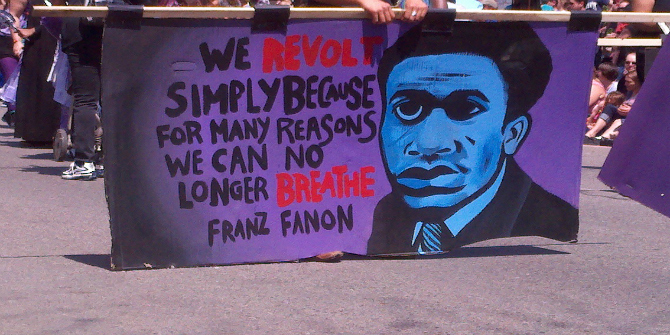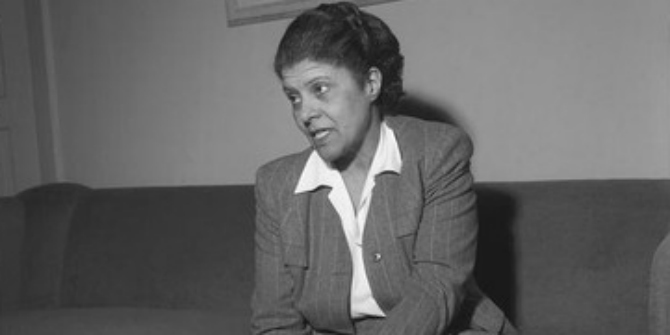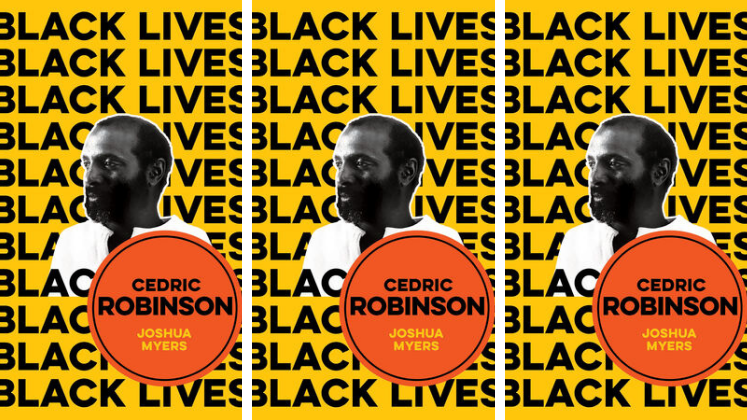To celebrate Black History Month 2023, members of LSE’s BME staff network EmbRace and the wider LSE community have recommended ten books about Black history, culture and experience. Covering contemporary literature, theory and history, these varied recommendations will challenge and inspire readers.
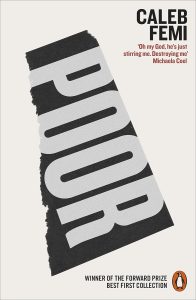 Poor. Caleb Femi. Penguin. 2020.
Poor. Caleb Femi. Penguin. 2020.
Poor combines poetry and original photography to explore the trials, tribulations, dreams and joys of young Black boys in twenty-first century Peckham. Femi considers how their lives are informed by the built environment of concrete walls and gentrifying neighbourhoods in a coded, near-mythical history of the personalities and sagas of his South London youth.
Recommended by Mark Briggs, Editor of the Africa@LSE blog and Communications Manager at the Firoz Lalji Institute for Africa
It’s a brilliant book written by LSE alumna Seyi Akiwowo, founder and CEO of Glitch, an award-winning UK charity that aims to end online abuse, with a particular focus on the experiences of Black women. The book provides the resources to be a better ally and just generally to look after yourself online. It’s well written, funny, interesting and practical – I’d highly recommend it.
Recommended by Raheela Shah, Alumni Volunteering and Recent Graduates Officer
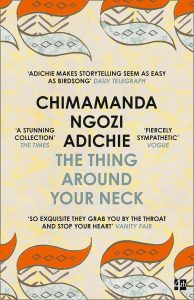 The Thing Around Your Neck. Chimamanda Ngozi Adichie. Fourth Estate. 2009.
The Thing Around Your Neck. Chimamanda Ngozi Adichie. Fourth Estate. 2009.
It’s a short story collection filled with stories centred around relationships, between families, lovers and friends, that span continents. The main story (and title of the book) of the immigrant experience not matching expectation is a common one, and the author has a dreamy and easy storytelling style that draws the reader in, feeding emotions into their soul with every word.
Recommended by Natalie Brittan, Digital Content Manager at LSE
Florence Beatrice Price (1888 to 1953) was the first African American woman to be officially recognised as a composer of symphonic music, one of the hardest genres to write for in classical music. She composed much much more including beautiful choral music and music that acknowledged her heritage. Linda Rae Brown, an African American musicologist pioneered Florence’s work and did much to popularise it throughout her life, which was sadly cut short a few years ago. Music as we all know now can do so much not just to calm our restless, troubled minds, especially classical and choral in my experience. But Florence’s music also has so much more to offer in breaking down stereotypes related to race, gender and class when listened to in relation to her life and times, thanks to Linda Rae Brown.
Recommended by Professor Joanna Lewis, Director, LSE Centre for Women, Peace and Security and PhD Programme Director, International History Department
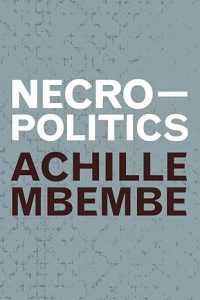 Necropolitics. Achille Mbembe. Duke University Press. 2019.
Necropolitics. Achille Mbembe. Duke University Press. 2019.
Necropolitics theorises the genealogy of our contemporary world, plagued by ever-increasing inequality, militarisation, enmity, and terror as well as by a resurgence of violent racist, fascist, and nationalist forces. Mbembe outlines how democracy has begun to embrace its dark side – what he calls its “nocturnal body” – which is based on the desires, fears, affects, relations, and violence that drove colonialism in this pioneering theoretical work.
Recommended by Professor Tim Allen, Director of the Firoz Lalji Centre for Africa and Professor in Development Anthropology at LSE
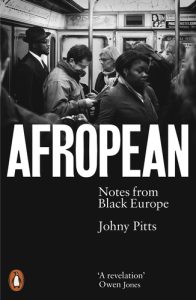 Afropean. Johny Pitts. Penguin. 2020.
Afropean. Johny Pitts. Penguin. 2020.
Part travelogue of the black diaspora in Europe and part history of different black intellectual communities that have shaped a unique Afropean identity on the continent. As anyone who saw his recent exhibition, Home is Not a Place, at London’s Photographers’ Gallery will attest, Pitts brings a photographer’s sense for finding poignant and often humourous social observations to this fascinating book.
Recommended by Michael Taster, Managing Editor, LSE Impact Blog
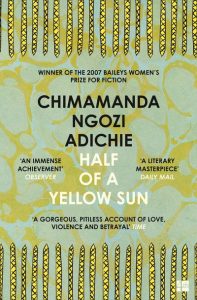 Half of a Yellow Sun. Chimamanda Ngozi Adichie. Fourth Estate. 2009.
Half of a Yellow Sun. Chimamanda Ngozi Adichie. Fourth Estate. 2009.
Centring around the Nigeria/Biafra war, this story captures a key piece of history from the perspective of three different characters, with essential themes of colonialism, class, race, gender and identity woven into their stories. The author’s effective and searing imagery delivers the trauma and tragedy of war using lyrical prose and effortless precision.
Recommended by Natalie Brittan, Digital Content Manager at LSE
This is an accessible, richly illustrated book about connections between the Atlantic world, Cambridge, and global history. The book accompanies a major exhibition now open at the Fitzwilliam Museum, Cambridge, until 7 January 2024, co-curated by Jake Subryan Richards.
Recommended by Jake Subryan Richards, Assistant Professor of International History at LSE
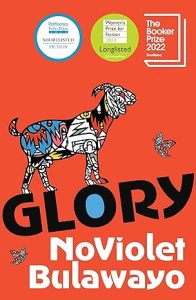 Glory. NoViolet Bulawayo. Vintage. 2023.
Glory. NoViolet Bulawayo. Vintage. 2023.
This imaginative satirical novel has a vivid chorus of animal voices tell the story of a country in the book tyrannical power that finds itself on the brink of revolution.
Recommended by Mark Briggs, Editor of the Africa@LSE blog and Communications Manager at the Firoz Lalji Institute for Africa
This powerful intervention questions whether today’s “decolonisation” truly serves African empowerment. Táíwò fiercely rejects the indiscriminate application of decolonisation to everything from literature to medicine, arguing that the decolonisation industry, obsessed with cataloguing wrongs, is seriously harming scholarship on and in Africa and imposing values on contemporary African thinkers.
Recommended by Professor Tim Allen, Director of the Firoz Lalji Centre for Africa and Professor in Development Anthropology at LSE
LSE Review of Books thanks all the members of the LSE community who contributed to this reading list with their book recommendations.
Note: This reading list gives the views of the contributors, and not the position of the LSE Review of Books blog, or of the London School of Economics.


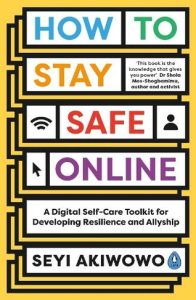

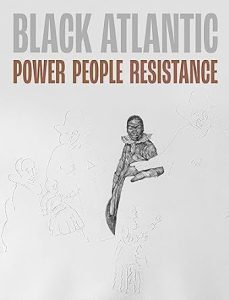 Black Atlantic: Power, People, Resistance. Victoria Avery and Jake Subryan Richards, (eds.). Bloomsbury. 2023.
Black Atlantic: Power, People, Resistance. Victoria Avery and Jake Subryan Richards, (eds.). Bloomsbury. 2023.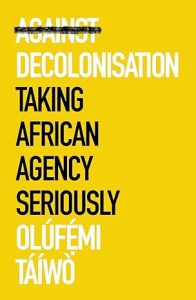 Against Decolonisation: Taking African Agency Seriously. Olúfemi Táíwò. Oxford University Press. 2022.
Against Decolonisation: Taking African Agency Seriously. Olúfemi Táíwò. Oxford University Press. 2022.
